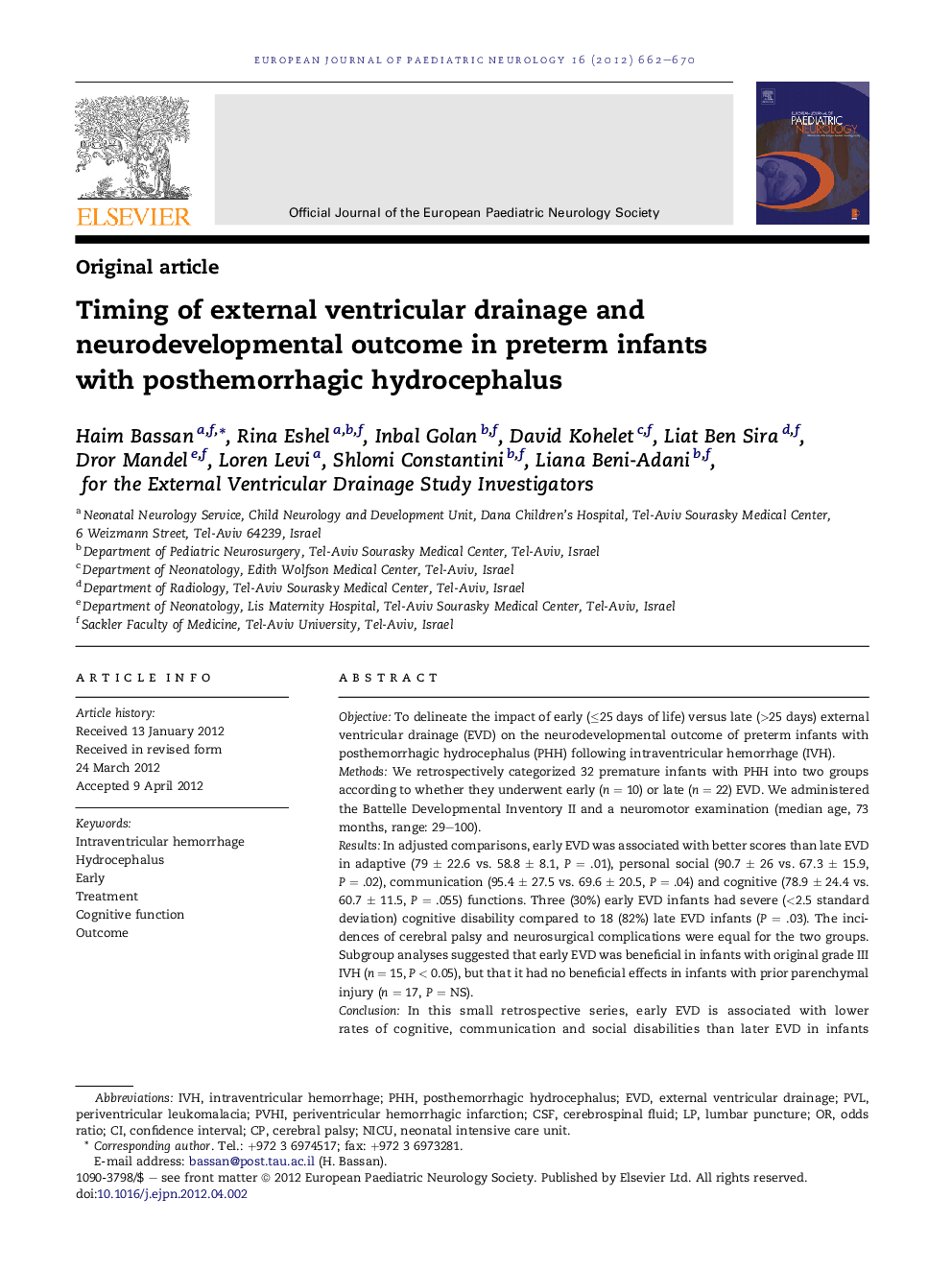| Article ID | Journal | Published Year | Pages | File Type |
|---|---|---|---|---|
| 3053907 | European Journal of Paediatric Neurology | 2012 | 9 Pages |
ObjectiveTo delineate the impact of early (≤25 days of life) versus late (>25 days) external ventricular drainage (EVD) on the neurodevelopmental outcome of preterm infants with posthemorrhagic hydrocephalus (PHH) following intraventricular hemorrhage (IVH).MethodsWe retrospectively categorized 32 premature infants with PHH into two groups according to whether they underwent early (n = 10) or late (n = 22) EVD. We administered the Battelle Developmental Inventory II and a neuromotor examination (median age, 73 months, range: 29–100).ResultsIn adjusted comparisons, early EVD was associated with better scores than late EVD in adaptive (79 ± 22.6 vs. 58.8 ± 8.1, P = .01), personal social (90.7 ± 26 vs. 67.3 ± 15.9, P = .02), communication (95.4 ± 27.5 vs. 69.6 ± 20.5, P = .04) and cognitive (78.9 ± 24.4 vs. 60.7 ± 11.5, P = .055) functions. Three (30%) early EVD infants had severe (<2.5 standard deviation) cognitive disability compared to 18 (82%) late EVD infants (P = .03). The incidences of cerebral palsy and neurosurgical complications were equal for the two groups. Subgroup analyses suggested that early EVD was beneficial in infants with original grade III IVH (n = 15, P < 0.05), but that it had no beneficial effects in infants with prior parenchymal injury (n = 17, P = NS).ConclusionIn this small retrospective series, early EVD is associated with lower rates of cognitive, communication and social disabilities than later EVD in infants with PHH without prior parenchymal injury. A randomized prospective trial is warranted.
